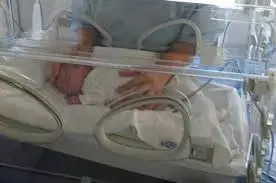- Home
- Medical news & Guidelines
- Anesthesiology
- Cardiology and CTVS
- Critical Care
- Dentistry
- Dermatology
- Diabetes and Endocrinology
- ENT
- Gastroenterology
- Medicine
- Nephrology
- Neurology
- Obstretics-Gynaecology
- Oncology
- Ophthalmology
- Orthopaedics
- Pediatrics-Neonatology
- Psychiatry
- Pulmonology
- Radiology
- Surgery
- Urology
- Laboratory Medicine
- Diet
- Nursing
- Paramedical
- Physiotherapy
- Health news
- Fact Check
- Bone Health Fact Check
- Brain Health Fact Check
- Cancer Related Fact Check
- Child Care Fact Check
- Dental and oral health fact check
- Diabetes and metabolic health fact check
- Diet and Nutrition Fact Check
- Eye and ENT Care Fact Check
- Fitness fact check
- Gut health fact check
- Heart health fact check
- Kidney health fact check
- Medical education fact check
- Men's health fact check
- Respiratory fact check
- Skin and hair care fact check
- Vaccine and Immunization fact check
- Women's health fact check
- AYUSH
- State News
- Andaman and Nicobar Islands
- Andhra Pradesh
- Arunachal Pradesh
- Assam
- Bihar
- Chandigarh
- Chattisgarh
- Dadra and Nagar Haveli
- Daman and Diu
- Delhi
- Goa
- Gujarat
- Haryana
- Himachal Pradesh
- Jammu & Kashmir
- Jharkhand
- Karnataka
- Kerala
- Ladakh
- Lakshadweep
- Madhya Pradesh
- Maharashtra
- Manipur
- Meghalaya
- Mizoram
- Nagaland
- Odisha
- Puducherry
- Punjab
- Rajasthan
- Sikkim
- Tamil Nadu
- Telangana
- Tripura
- Uttar Pradesh
- Uttrakhand
- West Bengal
- Medical Education
- Industry
Autologous umbilical cord blood cells Safe but Show No Early Neurodevelopmental Benefit in Preterm Infants: JAMA

Researchers have found in a phase 1 nonrandomized clinical trial that autologous umbilical cord blood cells (UCBCs) were safe and feasible in extremely preterm infants, with no significant differences in brain imaging or early neurodevelopmental outcomes compared to untreated controls. Notably, none of the UCBC-treated infants were assessed as high risk for cerebral palsy at 52–54 weeks postmenstrual age, warranting further investigation.
Umbilical cord blood–derived cells (UCBCs) are increasingly being evaluated for neuroprotective properties in perinatal brain injury.
A study was done to report early neurodevelopmental outcomes of extremely preterm infants who received autologous UCBCs in the CORD-SaFe study. This study reports early follow-up on the preplanned secondary aims of a phase 1 safety and feasibility nonrandomized clinical trial conducted between May 2021 and November 2023, with early follow-up completed in August 2024. Participants were infants born at less than 28 weeks’ completed gestation who received autologous UCBCs in the CORD-SaFe study at Monash Children’s Hospital, Australia. A contemporaneous cohort of noninfused infants born during the study period was included for comparison. Data were analyzed from October to December 2024. Infants underwent brain magnetic resonance imaging to assess structure and injury (Kidokoro score) at term-equivalent age. Assessments at 52 to 54 weeks postmenstrual age included General Movements Assessment, Hammersmith Infant Neurological Examination score, and clinical examination to diagnose risk of cerebral palsy. Results A total of 23 infants (median [IQR] gestation, 26 [25-27] weeks; median [IQR] birth weight, 748 [645-981] grams; 17 [73.9%] male) were administered UCBCs at a median (IQR) dose of 42.3 (31.1-63.2) million cells/kg. The contemporaneous cohort included 93 infants (median [IQR] gestation, 26 (24-27) weeks; median [IQR] birth weight, 769 [660-1017] grams; 39 [41.9%] male). Median (IQR) Kidokoro score was 2 (1-3) for the UCBCs group and 3 (2-5) for the contemporaneous cohort, with no statistically significant difference observed between the groups (adjusted median difference, 0 [95% CI, −1.78 to 1.78]). No infants in the UCBC group were assessed as high risk for cerebral palsy compared with 6 of 87 assessed infants (6.8%) in the contemporaneous group; however, the difference was not statistically significant (adjusted log odds, 0.31 [95% CI, −0.76 to 1.38]). No differences in Hammersmith Infant Neurological Examination score (adjusted log odds, −1.50 [95% CI, −5.78 to 2.78]) and absent fidgety movements (adjusted odds ratio, 0.24 [95% CI, 0.20 to 3.04]) were observed between groups. This phase 1 nonrandomized clinical trial assessing the safety and feasibility of autologous UCBCs in extremely preterm infants did not find significant differences in brain imaging parameters and early neurodevelopmental outcomes between the cell therapy and contemporaneous untreated groups. It was encouraging to note no infants who received UCBCs were assessed as high risk for cerebral palsy at 52 to 54 weeks postmenstrual age, and the absence of high risk for CP merits further study.
Reference:
Zhou L, Razak A, McDonald CA, et al. Early Neurodevelopment of Extremely Preterm Infants Administered Autologous Cord Blood Cell Therapy: Secondary Analysis of a Nonrandomized Clinical Trial. JAMA Netw Open. 2025;8(7):e2521158. doi:10.1001/jamanetworkopen.2025.21158
Keywords:
Zhou L, Razak A, McDonald CA, Early, Neurodevelopment, Extremely, Preterm, Infants, Administered, Autologous, Cord, Blood Cell Therapy, Secondary, Analysis, Nonrandomized, Clinical Trial, JAMA Netw Open
Dr. Shravani Dali has completed her BDS from Pravara institute of medical sciences, loni. Following which she extensively worked in the healthcare sector for 2+ years. She has been actively involved in writing blogs in field of health and wellness. Currently she is pursuing her Masters of public health-health administration from Tata institute of social sciences. She can be contacted at editorial@medicaldialogues.in.


